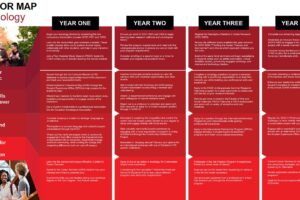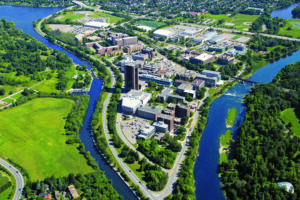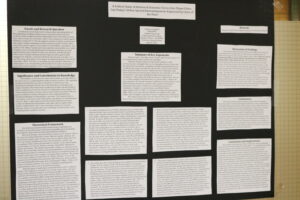Undergraduate Programs in Anthropology
Thinking about pursuing a B.A. in Anthropology? Wondering what you can do with an undergraduate degree in Anthropology? If you’re interested in learning more about the student experience in the Department of Sociology and Anthropology, then please take a look at our current undergraduate students page. There are plenty of student supports in place at Carleton University to support your academic journey and help you with academics, finances, careers, mental health and well-being. In addition, the Sociology and Anthropology Student Association (SASA) is here to provide you with opportunities to connect with students, faculty, and staff in the department.
Our Undergraduate Programs in Anthropology
We offer a range of undergraduate programs. Click through the items below to learn more about our offerings.
- Anthropology Bachelor of Arts
- Anthropology Bachelor of Arts Honours
- Anthropology Bachelor of Arts Combined Honours
- Minor in Anthropology
- B.G.In.S. Honours: Specialization in Globalization, Culture and Power
- B.G.In.S.: Stream in Globalization, Culture and Power

Hi!
I am the Undergraduate Coordinator for Anthropology. You can read more about my research, teaching interests on my department profile page. Along with our exceptional department staff, in particular Kim Mitchell, the department’s undergraduate administrator, I am here to help you navigate your undergraduate degree in anthropology and answer your questions about the anthropology programs. Are you unsure if you are meeting your program requirements? Want advice about what courses align with your interests? Or help making a plan for your upcoming years of study? Want to know more about our Honours Research Paper or Practicum Placement courses? Interested in learning more about getting an undergraduate degree in anthropology? Please don’t hesitate to reach out by email (blair.rutherford@carleton.ca) and we can arrange a meeting to talk by Zoom or in-person.

Anthropology Major Map
Review the Anthropology Major Map to plan your academic path, build skills and discover interests, engage locally and globally, and prepare for life after graduation.

Co-Operative Education
A co-operative education option is available to students registered in the B.A. Honours programs. Students must successfully complete three work terms to obtain the co-op designation.

Placements/Practicum Courses
Work placement programs (in some fields, referred to as a ‘practicum,’ & in others, as a ‘placement’) offer students the chance of working for one academic term in a community organization in exchange for course credit.

Learn More About the Minor in Community Engagement

Learn More About Honours Research and Capstone Projects in Anthropology

Frequently Asked Questions
Banner image by: Sarah O’Sullivan
Anthropology at Carleton
Why do people live the way they do and not some other way? In order to answer this question, the first order of business is to accurately describe how people actually live across time and space. The art and science of this description is called ethnography, and it is the mainstay of anthropological research, writing, and critical reflection. In the course of your undergraduate studies in the anthropology program at Carleton, you will learn to read ethnographic texts, conduct ethnographic fieldwork and, if you opt to do an Honours Research Paper (ANTH 4900) or Capstone Seminar in Globalization, Culture, and Power (ANTH 4590) in your 4th year, write your own ethnography.
Regardless of whether you earn a B.A. in Anthropology or a B.G.In.S, in Globalization, Culture and Power, the skills you will learn in Carleton University’s anthropology programs are in high demand for public, non-profit and private-sector employers. That said, an equally important benefit of studying socio-cultural anthropology as an undergraduate is that it trains you to continuously reflect on your own place in the world and your connections to others. The resulting awareness of the cultural context in which you live and work will help you understand the internal dynamics of your own future workplace, for instance, as well as the way in which those dynamics are related to constantly changing external conditions. Thus, our program aims to help students become not just excellent critical thinkers, writers and researchers, but also empowered citizens of an endlessly complex world.
By the time you reach your final year of study, you will realize there is really no limit to what can be studied ethnographically, just as there is really no limit to what human beings do, have done, or can imagine themselves doing. Armed with this knowledge, and the skills to use it, graduates of our B.A. and B.G.In.S. programs are well-equipped to navigate a transforming, globalizing, decolonizing world in which no one way of life can legitimately claim to be better than any other.